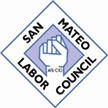


|
|
|
|
|
|
Teachers Sound Alarm over Court’s Anti-Public Education RulingJuly 2014 By Sarah Lazare, Common Dreams In a ruling with broad implications for public education across the United States, a California court struck down key workplace protections for the state’s public school teachers June 10 by siding with student plaintiffs—backed by powerful political forces— who claimed such policies negatively impacted the quality of their learning. Issued by Los Angeles Superior Court Judge Rolf M. Treu, the decision sparked outrage from teachers unions and public education advocates across the country. “Like the lawsuit itself, today’s ruling is deeply flawed,” said Dean Vogel, president of the California Teacher’s Association, in a statement about the decision. “This lawsuit has nothing to do with what’s best for kids, but was manufactured by a Silicon Valley millionaire and a corporate PR firm to undermine the teaching profession and push their agenda on our schools.” In a 16-page decision, Treu overturned key workplace safeguards and due process rights for teachers—including seniority, tenure, and other job protections. He backed the plaintiff’s argument that laws protecting tenure and seniority are discriminatory because they keep, in his words, “grossly ineffective teachers” in classrooms that disproportionately serve “low-income and minority students.” Kevine Boggess of San Francisco-based Coleman Advocates for Children and Youth told Common Dreams that the ruling is “misleading” about the problems that students in his community face. “What we see in San Francisco is issues of civil rights and racial disparities, as well as arrests at school sites, come down to the fact that key constituents are not allowed in decision-making. The real issue is how do we improve the education system, not how do we take rights away.” According to education policy analyst Diane Ravitch, Treu’s claim that making it easier to fire teachers will improve education “lacks any evidentiary basis” and is the “latest example of the blame-shifting strategy of the privatization movement.” The lawsuit, Vergara v. State of California, was brought by nine public school students who were heavily backed by the organization Students Matter, which was founded by Silicon Valley millionaire David Welch. Welch, whose organization is associated with prominent corporate education reformers, bankrolled a team of lawyers to represent the plaintiffs and worked with a corporate public relations firm to garner public support for the challenge. According to the New York Times, the organization is considering similar lawsuits in cities across the United States, in a bid to expand from the three states, as well as the District of Columbia, that have already overturned tenure protections. U.S. Education Secretary, and Obama appointee, Arne Duncan immediately hailed the California decision, calling it a model for a “a new framework for the teaching profession.” Chicago Teachers Union communications director Stephanie Gadlin called the ruling “ludicrous” and “hypocritical,” saying, “Due process and other protections for educators is ruled unconstitutional, yet closing schools, mandating unnecessary high-stakes testing, privatizing local school districts through charter expansion and destabilizing neighborhood school communities is good law?” Ravitch charges, “If they were truly interested in supporting the needs of the children, the backers of this case would be advocating for smaller classes, for arts programs, for well-equipped and up-to-date schools, for after-school programs, for health clinics, for librarians and counselors, and for inducements to attract and retain a stable corps of experienced teachers in the schools attended by Beatriz Vergara and her co-plaintiffs.” The statement from the CTA and CFT noted that, “There is nothing unconstitutional about these laws and the plaintiffs clearly failed to show harm to any student. Testimony and research actually showed that teaching experience enhances classroom effectiveness and increases student productivity at all grade levels. All three of the issues in this case contribute to better outcomes for students. Eliminating the professional and due process rights of educators will not improve student learning, but will make it harder to attract and retain quality teachers in our classrooms.” California teachers unions have vowed to appeal the ruling, and Treu moved to keep existing laws in place while the appeals process is ongoing. More information about the Vergara lawsuit, including trial video, can be found at www.cta.org/Vergara and www.vergaratrial.com.
|
|||||


